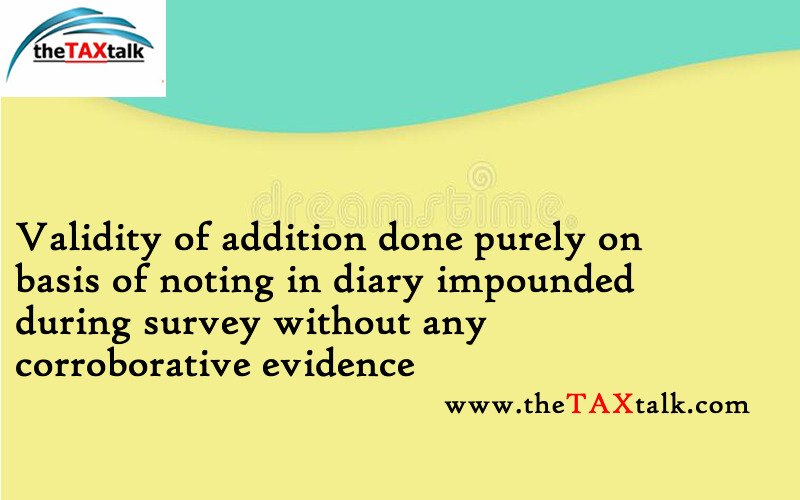![]()
Validity of addition done purely on basis of noting in diary impounded during survey without any corroborative evidence
Short Overview Although addition had been made purely on basis of noting in diary impounded during survey without any corroborative evidence, however, one of the entries found in the diary was duly recorded in assessee’s books of account, thus, such figures found in the diary could not be imaginary. Further, admittedly, AO did not invoke section 69/69A; therefore, only profit element should have been taxed. Accordingly, the AO was directed to restrict the addition @10% of gross receipts.
A survey operation under section 133A was carried out at business premises of assessee. AO recorded that during the survey operation, certain documents, i.e. A-3 blue diary was impounded and certain entries were found to be unrecorded in books of account. Assessee submitted that the diary was for the purpose of keeping track of the entries for memory only. However, the explanation of the assessee was not found acceptable by the AO on the basis that one of the entries in that diary was duly recorded in the books of account. Therefore, the AO made addition on account of entries not recorded in the books. Assessee submitted that the addition had been made purely on the basis of noting in the diary without any corroborative evidence and such addition was not sustainable.
It is held that It is settled position of law that no addition can be made merely on the basis of loose paper without being substantiated by any corroborative evidence. In instant case, undisputedly, one of the entries found in diary was duly recorded in the books of account; thus, such figures found in the diary could not be imaginary. Further, admittedly, AO did not invoke section 69/69A; therefore, only profit element should have been taxed. Accordingly, the AO was directed to restrict the addition @10% of gross receipts.
Decision: Partly in favour of assessee
IN THE ITAT DELHI, ‘SMC’ NEW DELHI BENCH
KUL BHARAT, J.M.
Bhavana Jain v. ITO
ITA No. 5137/DEL/2019
A.Y. 2013-14
21 September 2021
Assessee by: K. Sampath, Advocate, V. Rajkumar, Advocate
Revenue by: Gaurav Pundir, Sr. Departmental Representative
ORDER


